|
You deserve a break today! Take a moment to relax and have a bit of a laugh. Here are this months funnies we borrowed from all over the internet**. **Yes, we were absolutely procrastinating. There were reports to write, tests to score, 60 emails waiting for us, and oh yeah, taxes are due sometime soon, aren't they? But these are so good! Leave a comment and let us know what you're putting off doing. We like to know we aren't alone! 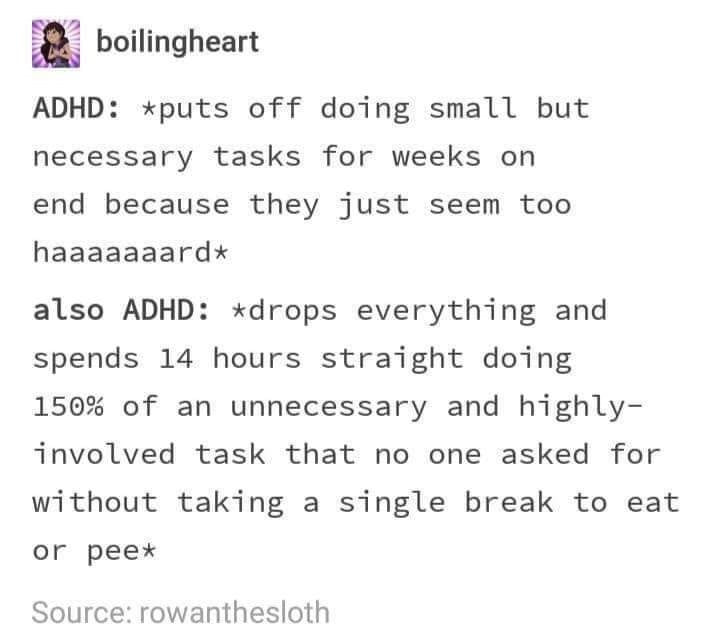 Keith Carman – Chief Administrative Coordinator
I know what you’re thinking: “ADHD improving a relationship? It’s not possible. This guy’s off his rocker.” Believe it or not, it’s true. Depending on how you approach the situation, naturally. Stories of parents having their children assessed only to realize that they themselves should be tested because “things are ringing all too true” abound. What a lot of folks don’t touch on is that the bond between an ADHD child and an ADHD parent post-diagnosis can actually become stronger. Let’s look at it in this context: Jimmy has been driving me nuts. He won’t focus, he never seems to be hearing what I’m saying, and don’t even think about a list of chores. He’ll be lucky to get through the first one before plodding back to ask what’s next. Ok, he was assessed, and it’s ADHD. Now I know what I’m dealing with. Yet, everything that was driving me around the bend with Jimmy also seems to apply to my life. Nobody understands me. I have my system, and it works for me, even if nobody else gets it or thinks it’s counterproductive and messy. Why do I always fade out during meetings? What was that bunch of items my partner asked me to pick up on the way home? Gosh, I heard the first thing, but I was so focused on ensuring I got it and didn’t forget at all that the rest of what they were saying became a blur of noise like Charlie Brown’s teacher. Wait a minute. If I took every one of those points and put them into my child’s life/situation/head, maybe I do understand them on a new level. When we parents take the onus and find answers to our own concerns, we can…relate. To our children. What a concept. Suddenly, we have ways of understanding what they’re facing. How they don’t want to blank out when given a page of chores. How they really do want to succeed, but everything feels like an uphill battle. Kind of like trying to get to work on time, clean the house, pay bills, cut the lawn, take care of fazed-out kids, and the other million things we parents must tackle weekly. Yet, it’s all so much, and we don’t know where to start, so we just sit and do absolutely nothing while the pile of anxiety gets bigger and bigger. It’s just in their life context. Instead of hollering, punishing, or getting exasperated, we can support them—and vice versa—because we get it. And the more we get them, the more they get us. When their ADHD feels as though it’s too tough to overcome, getting in the way of success or just generally beating them down, we can encourage; be the example to say, “I know it feels like this is a mountain, but look at my life. I made it into a molehill. Let’s tackle it together and get to the next ‘mountain.’ Maybe you can even help me with what I think is my next ‘mountain’ since you get what’s going on in my head.” Sometimes, even more importantly, we can also call one another out when ADHD is being used as a crutch, deterrent or outright excuse. The veil is lifted, removing any chance to hide behind the easy (yet flimsy) “ADHD won’t let me” defense. So, you went to the easy task first, and now you’re behind on the truly important thing, huh? Sounds like someone let their ADHD steer the ship. Who’s playing video games instead of cleaning the bathroom: you or ADHD? We KNOW what it’s like to feel that way. Due to more life experience, we have the resources to overcome it, and we can call foul when it just seems easier to blame neurodivergence than grab those bootstraps. It might not always be a cakewalk, but by offering understanding, support and accountability due to having the same life passenger in our heads, yes, we can actually improve child/parent relationships via ADHD. Smitha Chandrashekar - Psychometrist
Navigating the world through the lens of Autism Spectrum Disorder (ASD) is a journey that unveils a wealth of unique perspectives and challenges. As someone who has closely worked with individuals on the spectrum, I have come to understand that for individuals on the spectrum, the act of seeing everything but struggling to maintain eye contact is not just a quirk or a preference; it is an inherent aspect of their cognitive and sensory experience. Imagine standing in a bustling city square, surrounded by a cacophony of sights, sounds, and sensations. For neurotypical individuals, making eye contact may come naturally as an extension of social interaction. But for someone on the spectrum, it is almost like navigating a labyrinth of discomfort and overload. The world is a symphony of sensations for them. Every texture, sight and sound, is amplified, enhanced, and processed in great detail. It is as if their senses are tuned to a frequency that others cannot fully comprehend. In this chaos of sensory input, making eye contact becomes a daunting task, taking valuable cognitive resources away from comprehending the world around them. When they look at you, they see every minuscule detail; the slightest shift in your facial muscles, the flicker of emotion in your gaze, the little details that most individuals miss. It is not that they are uninterested; rather, their attention is consumed by the intricate dance of sensory information bombarding their brain. Sadly our society places immense value on eye contact as an indicator of connection and involvement. We are all taught since a very early age that "look me in the eye" implies honesty, sincerity, and respect towards the other individual we are conversing with. However, for individuals on the spectrum, this expectation can feel like an impassable barrier, a constant reminder of their perceived inadequacies in the area of social interaction. The struggle to maintain eye contact is not a sign of rudeness or boredom, but rather of the sensory overload and cognitive dissonance that characterize ASD. Despite the struggle, there is resilience. Despite the limitations, individuals on the spectrum have a unique perspective--the capacity to look beyond the surface and delve deeply into the complexities of human connection and emotion. Their gaze may not always match yours, but their minds are brimming with insight, empathy, and understanding. So, the next time you see someone who has difficulty making eye contact, I encourage you to go past the surface; to see the individual behind the hesitation, an individual with a wealth of untapped potential and insight. And perhaps, by accepting their differences, you can form connections that go beyond the boundaries of eye contact and appreciate the diversity of the human experiences. You are not alone. Learning disabilities affect people of every description. Many of the people you admire or look up to struggle with learning and attention. Below are a number of quotes by famous individuals who have overcome their learning disabilities and/or Attention Deficit Hyperactivity Disorder (ADHD). Take a look at how they accepted their disabilities and found ways to work with them, move through them, or around them. Some of them received defeating messages from school, peers, or others. Despite this, they found ways to reject these negative messages or combat them and succeed.
We hope these quotes can serve as inspiration to help you overcome any difficulties you may be experiencing, and find your path to your success and joy! By: Hailey Edwards-Kern – Receptionist, Assistant to the Director
Have you ever heard “if you just tried harder” or “if you stopped being so lazy”? Whether it was from an internal monologue or an outside influence many people with learning disabilities have heard these phrases. Learning disabilities are not tied to intelligence and have no bearing on future success. Learning disabilities are hidden or non-visual disabilities that are not immediately apparent and cannot be simply overcome by “trying harder”. There are many different types of learning disabilities including Dyslexia, Dysgrpahia, Dyscalcuila, Auditory Processing Disorders, and Nonverbal Learning Disabilities. There are many diverse paths people can take to get help with their learning disability. Advocating for yourself is the number one most important tool you have to get what you need to be successful! Here are some ways you can help yourself reach your goals, advocate for yourself and continue on a positive path forward: Getting an assessment to help understand your brain and to put it into terms that others will understand as well. Getting an assessment will give you an accurate diagnosis that can help you gain access to personalized support, resources and improve self-awareness. Having a professional perspective on your life circumstances can provide insight into some of the ‘whys’ you may have about your life. Talking to loved ones about your learning disability: Disclosing personal information is a decision that should be made with great care. Think about someone in your life who you have open and honest communication with. Talking with a safe person about your learning disability can help them deepen their understanding of you and help you verbalize some of the experiences you’ve had through your unique circumstances. Getting on an IEP in School: Getting an Individualized Education program is the best way to ensure you have the tools necessary to be successful in school. The report from an assessment gives your school the information they need to create a plan of action concerning your specific needs. This can be extended time on tests, recording devices, or having lecture notes provided before/after class. IEPs should be reviewed and updated regularly and you should be involved in ensuring this happens. Workplace disclosure: According to the Canadian Human Rights legislation, employees have a right to accommodations in the workplace if it does not cause “undue hardship” to the company or organization. You can consider disclosing your learning disability to your employer if you feel your disability is hampering work performance and if you feel your employer will be receptive to this disclosure. Using Assistive Technology: Find technology that works for you! After your assessment, you will have a section which speaks to which technology might be most beneficial to you! There are many wonderful devices and websites that can help like speech-to-text tools, graphic organizers, audible audio books, and mathtalk. Using AI: Though it can get a bad rap for people using it to plagiarize, using websites like Chat GPT can help you summarize documents, give ideas for projects and help understand a deeper meaning behind concepts. As long as you're not copying and pasting and passing off the information as your own AI can be a great jumping-off point. Develop a schedule: break down your day into manageable pieces. One helpful tool is the ABC method, which helps you prioritize what is most important to get done. Write down your weekly tasks and organize them into these 3 categories. A is the most important and time-sensitive and non-negotiables must-do which will have consequences if they are not finished. B is not as urgent but are tasks that need to be accomplished to keep your work moving forward. Finally, C is things you want to accomplish but that are not time-sensitive. Keeping these tasks handy on your mobile device will mean you are never without them and you can change the priority level as needed. Self Care: This is preached a lot and seldom practiced. What type of activity makes you feel unbearably excited? What makes you feel comfort and peace? Use these questions to formulate what makes you happy and strive for it. Take a bath, go for a walk or cook your favourite meal. Incorporating small bits of joy into your everyday schedule helps make every day a little brighter and creates a more comfortable environment for learning. Mental Health and Empowerment: Learning disabilities can have a negative impact on your mental health and can lead to low self-esteem. Knowing your strengths and challenges can help you advocate for yourself and help you take control of your learning journey. It is important to communicate your needs and feelings clearly and assertively to get the help you deserve. Positive mantras can be an excellent way to build resilience and can be said out loud or written down somewhere visible. These can sound like “ I am capable, strong and take on challenges with ease and grace.” Tailor these to your current situation or task at hand, the more positives we speak into the world, the more we start to see them. Everyone learns differently and it is important we take the time to get to know ourselves and loved ones so everyone can have the accommodations that best fit their unique learning style. Getting an assessment is the first step in gaining a deeper understanding and the best tool to help you start your journey to advocating for yourself. If there are any tips that have been particularly helpful to you, we would love to hear them in the comment section below! |
Tara Carman-FrenchDirector, Certified ADHD & LD Coach Archives
June 2024
Categories
All
|
HoursM-F: 9:30 am - 4:30 pm
Other hours possible upon request |
Telephone1-888-239-1483
|
|

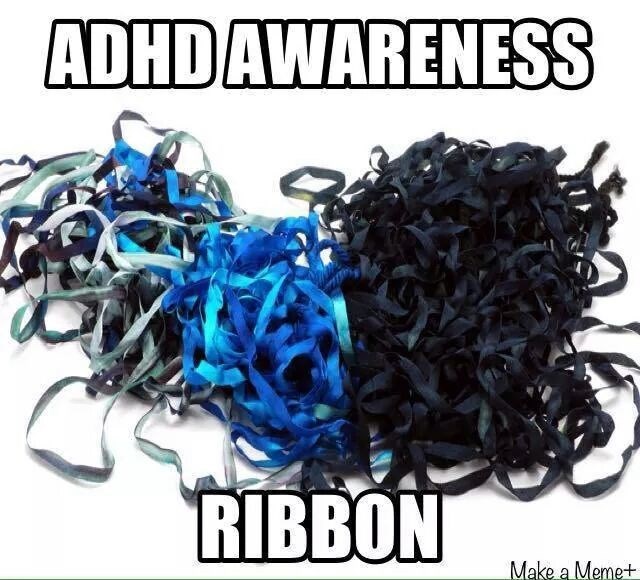
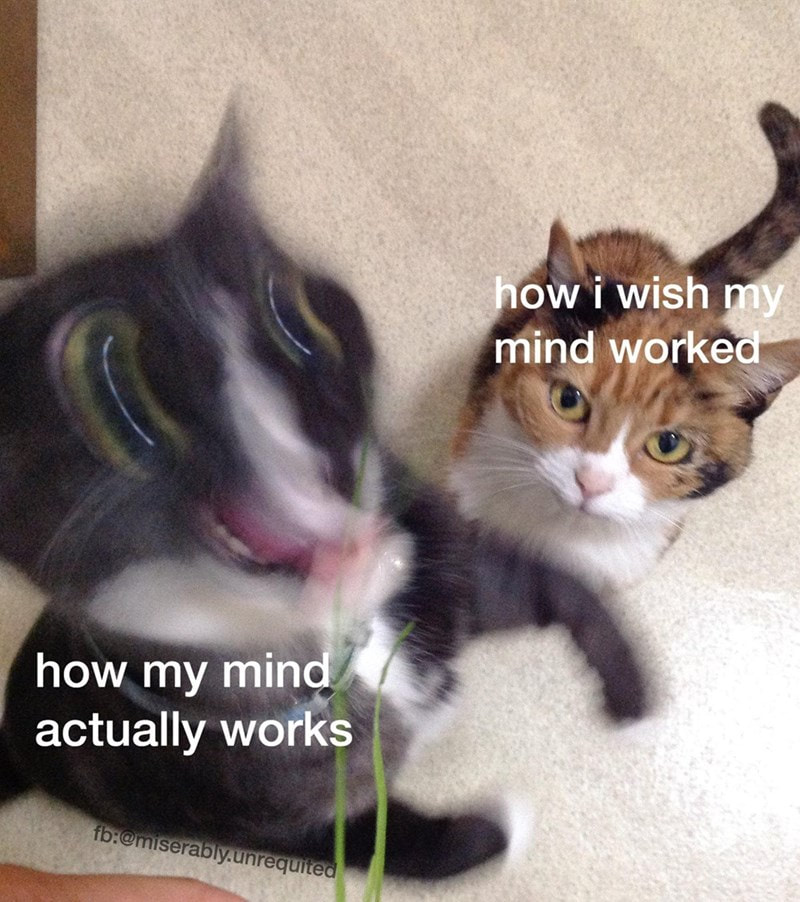
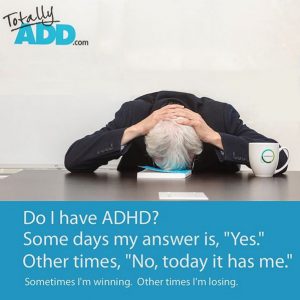
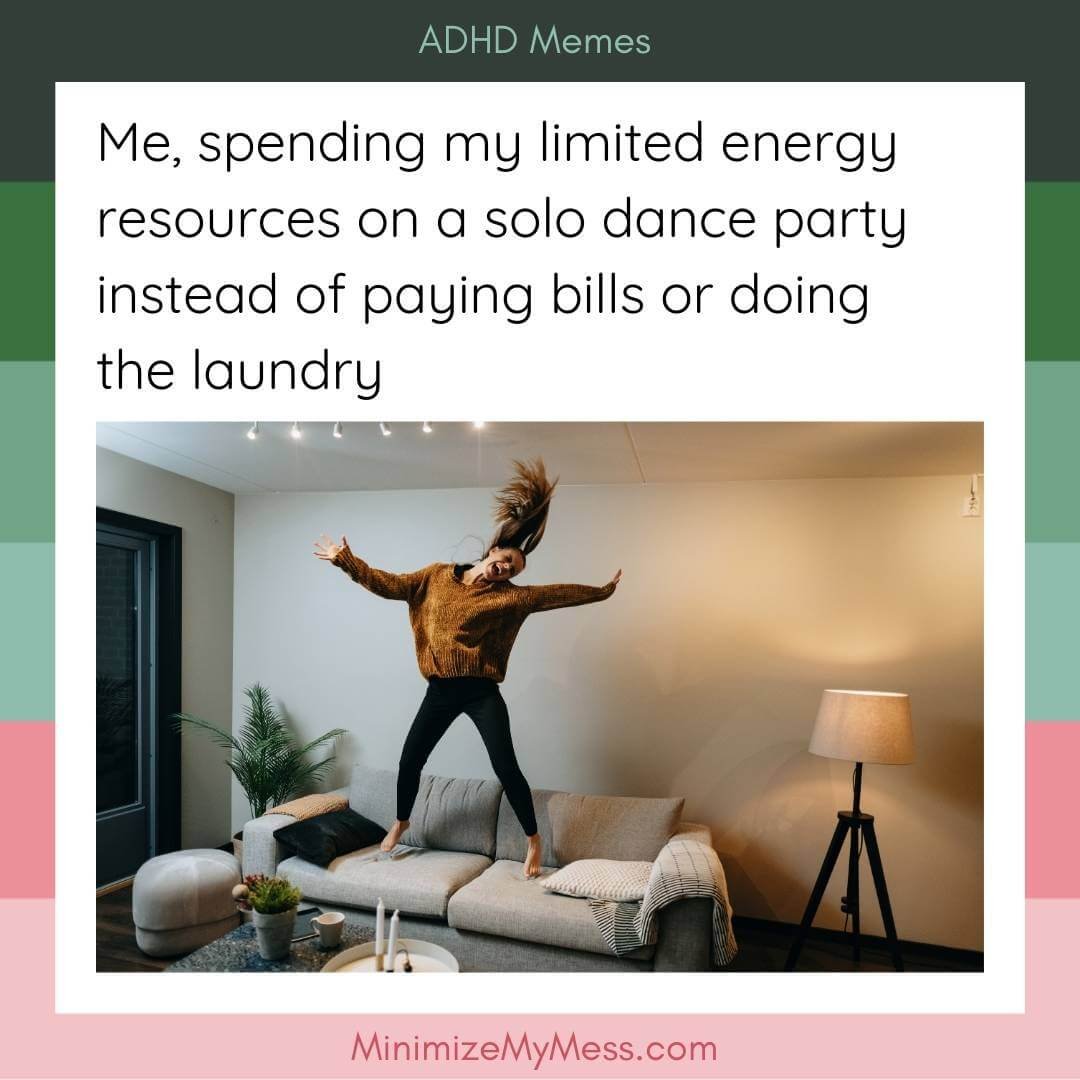
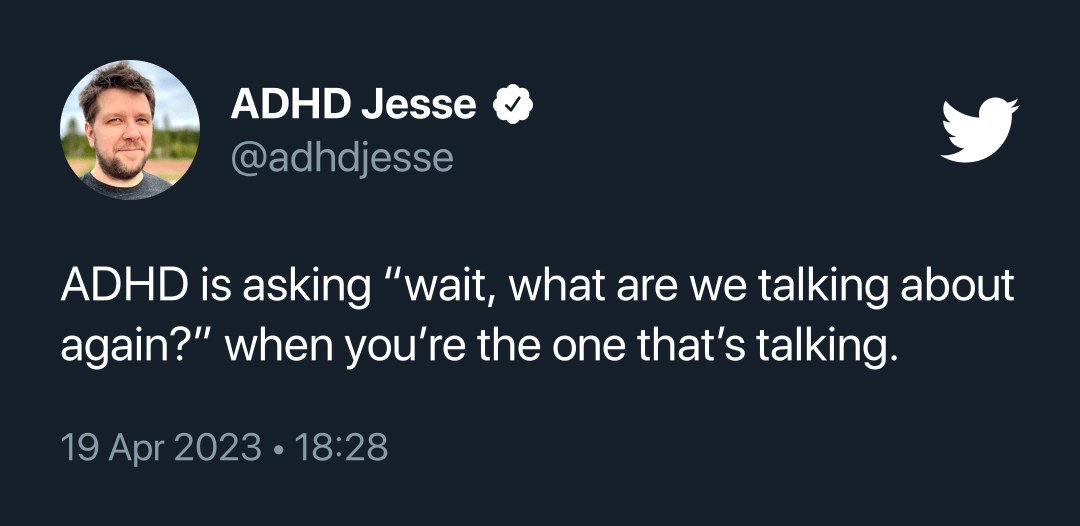

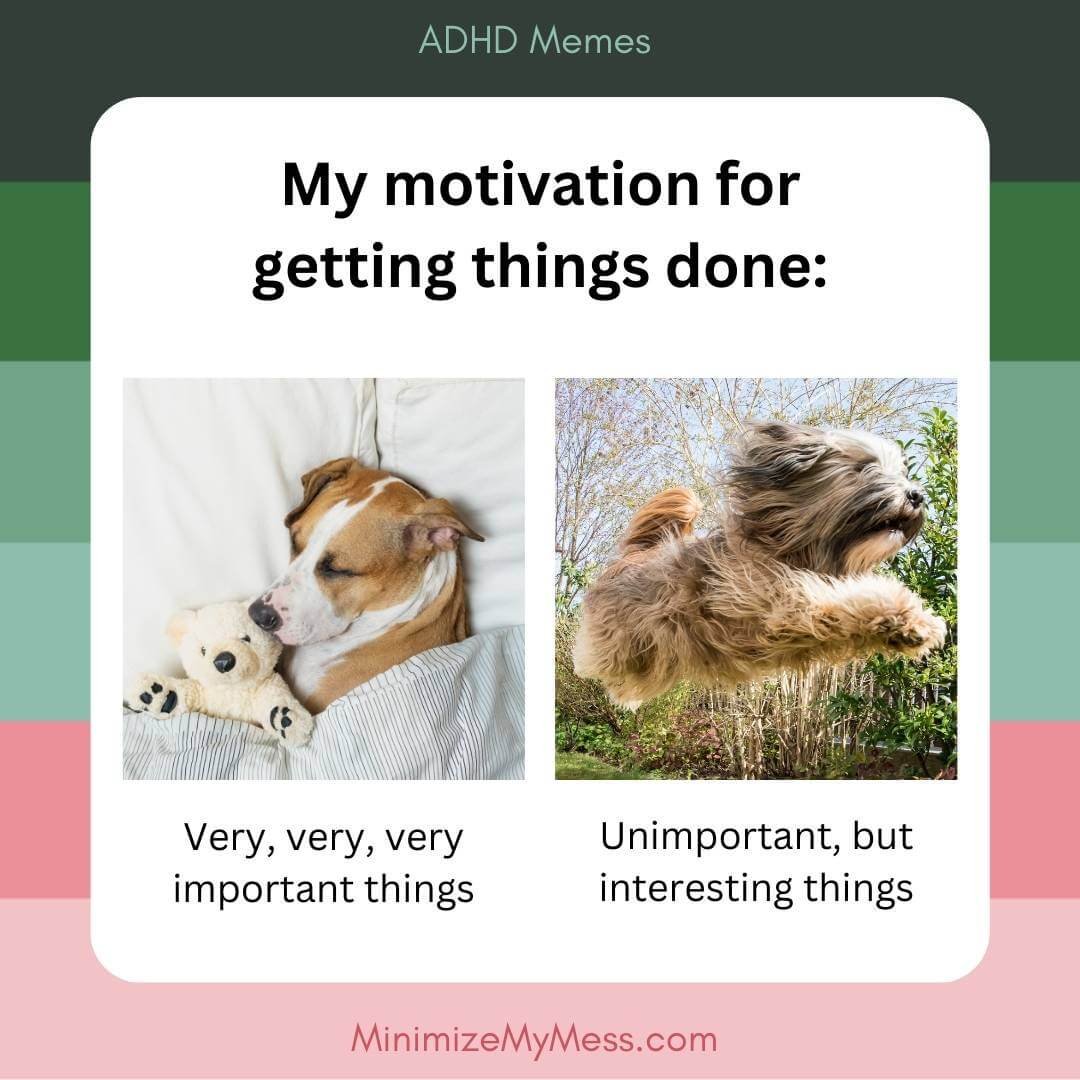
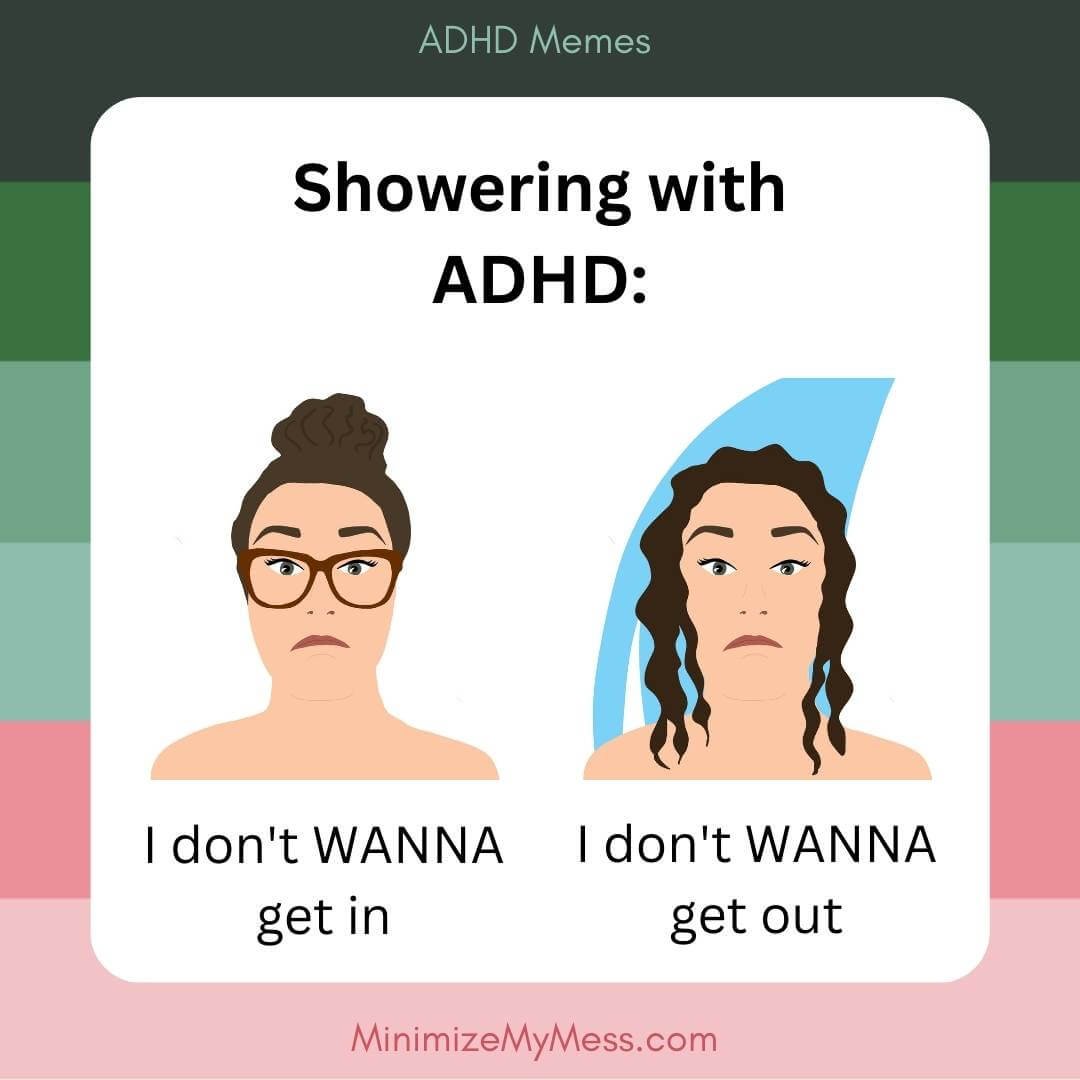
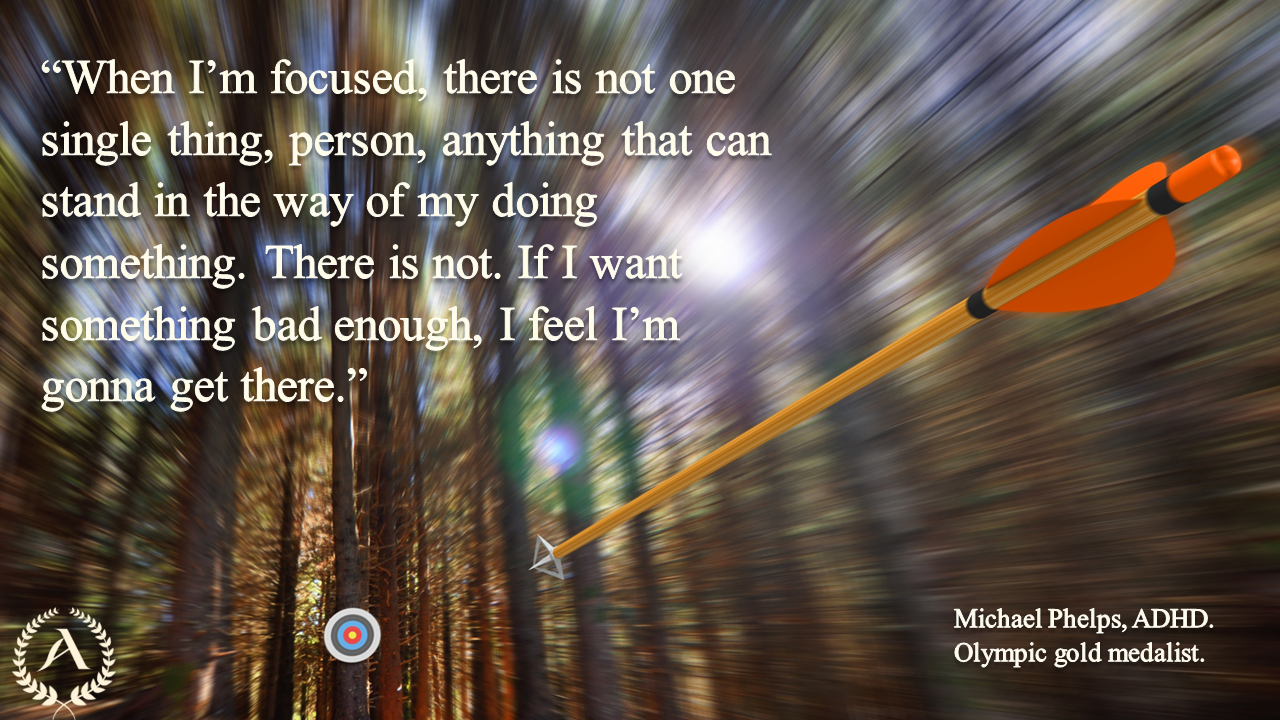
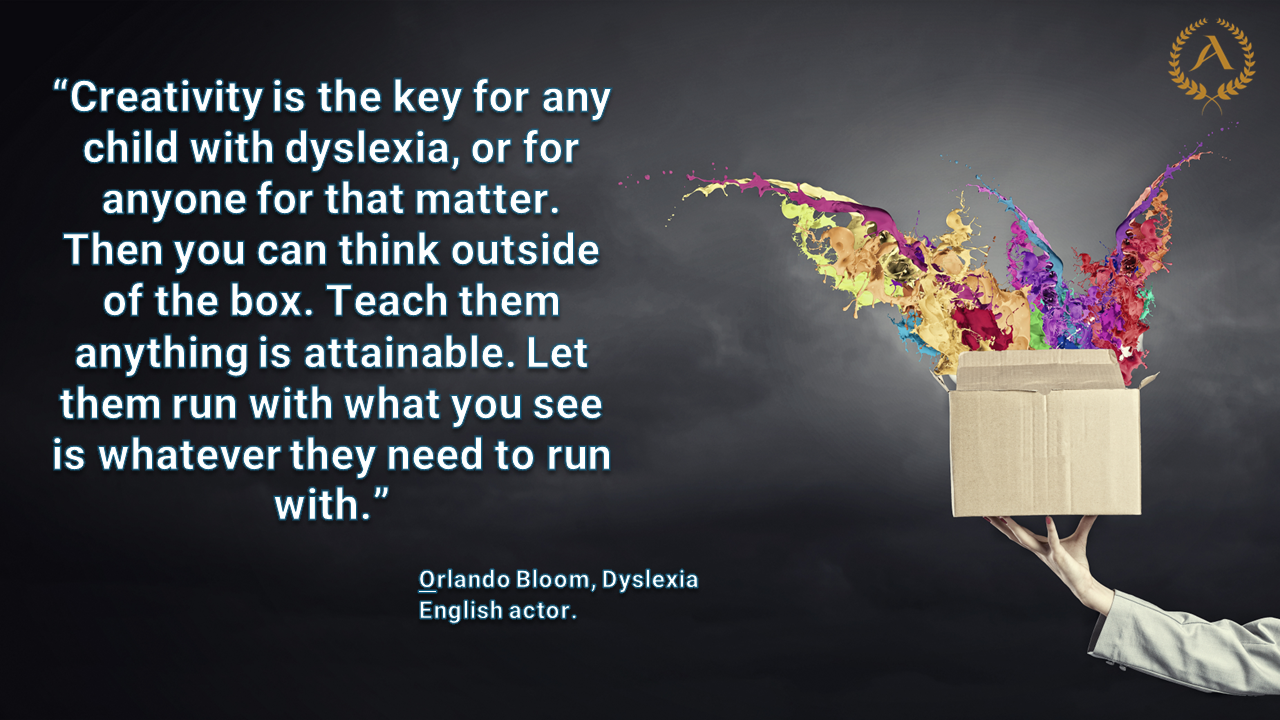
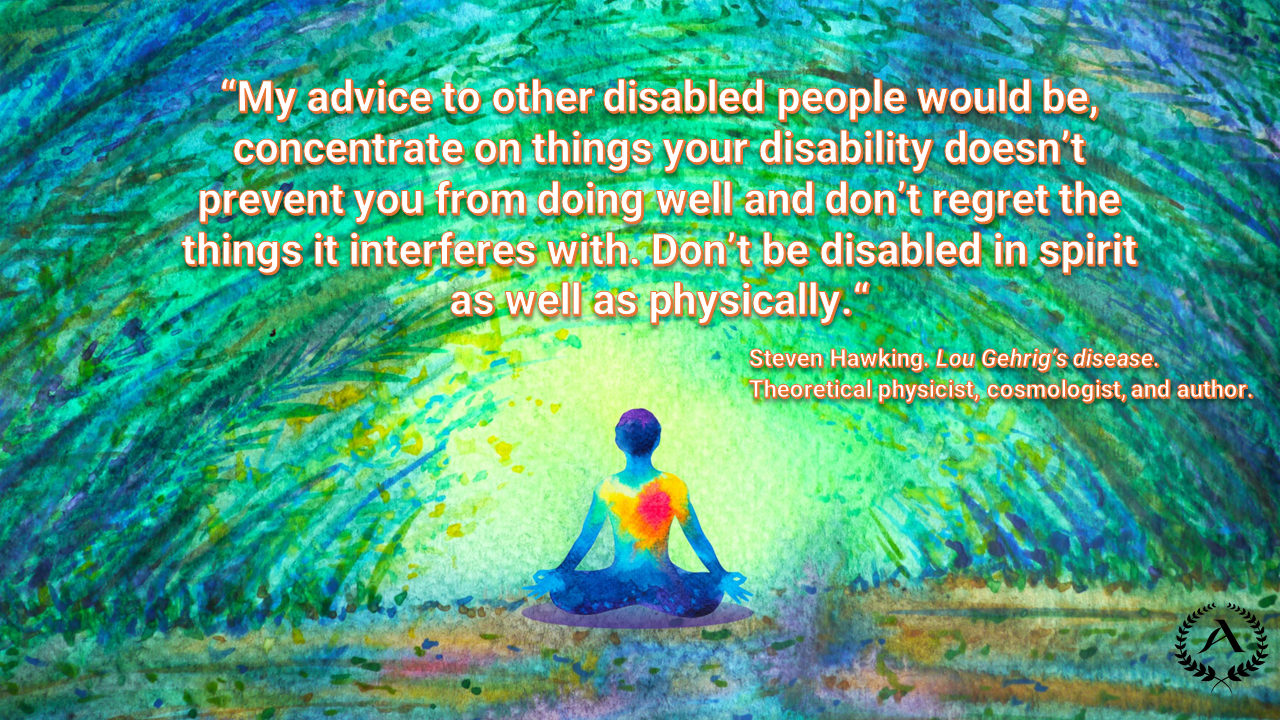
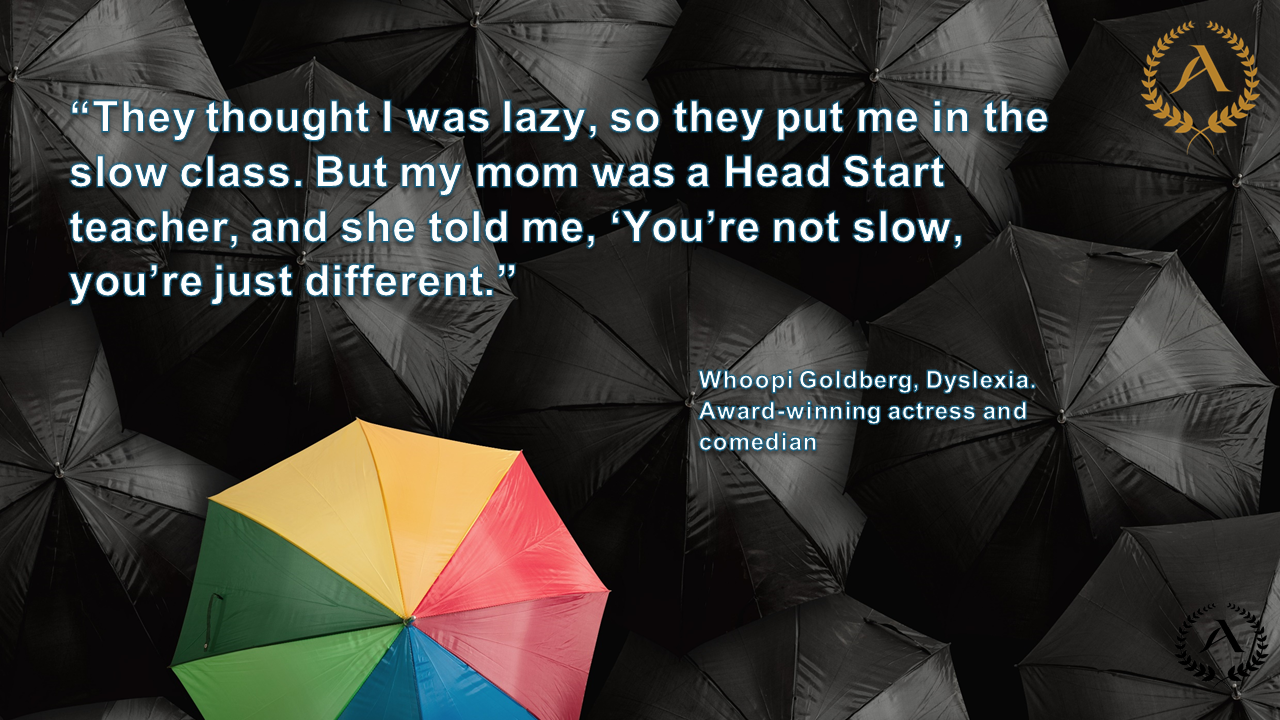
 RSS Feed
RSS Feed
